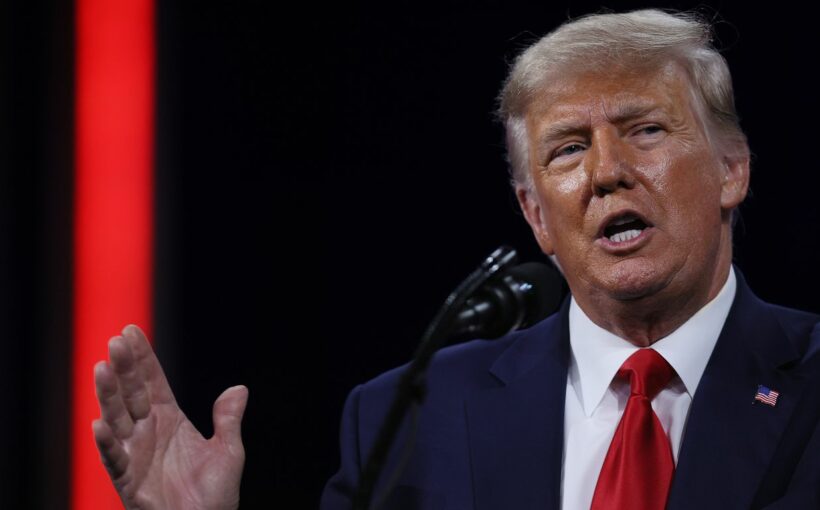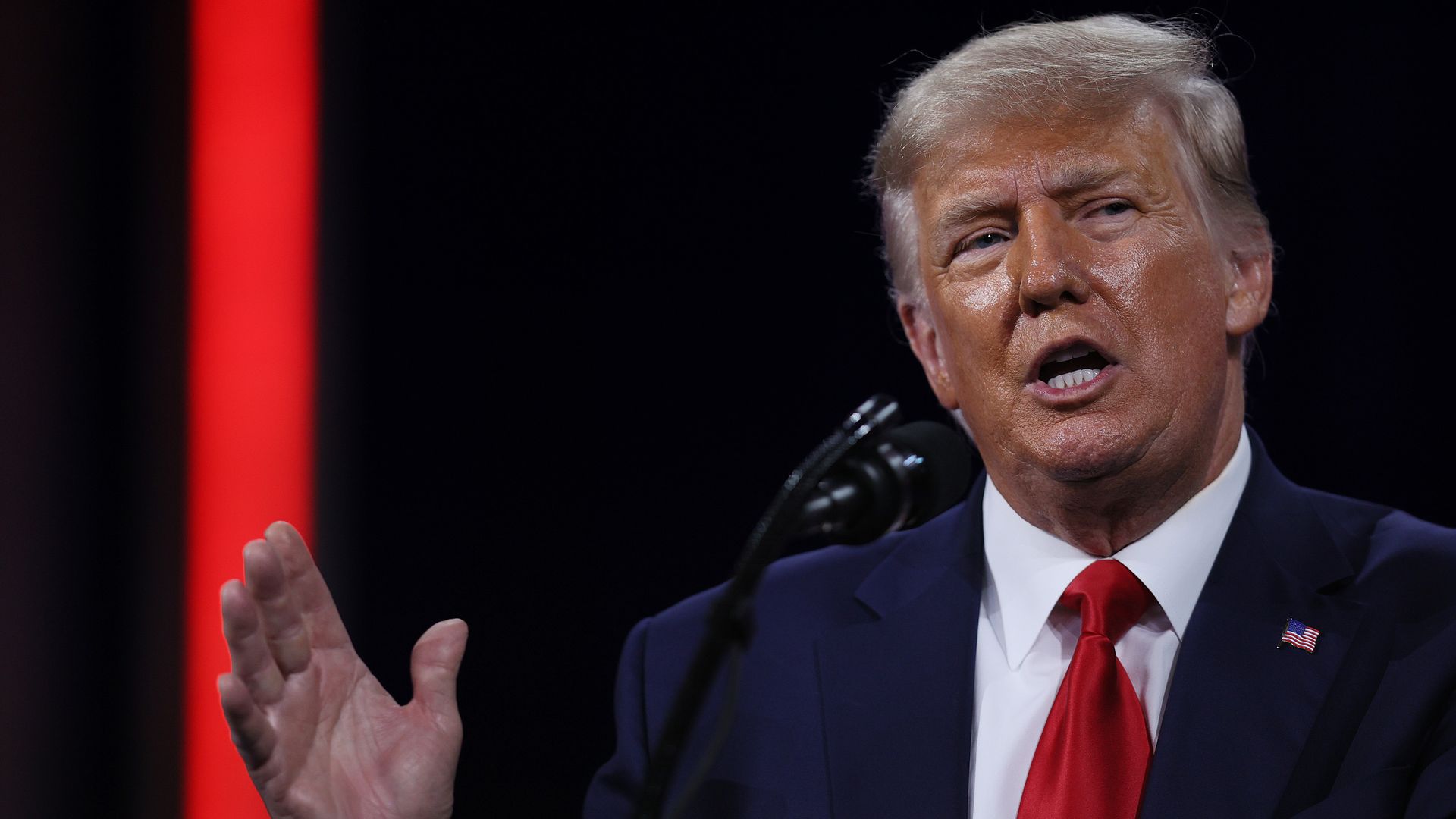Former President Trump. Photo: Joe Raedle/Getty Images
The Federal Election Commission announced Thursday that it won't proceed with a case examining whether former President Trump violated election law in 2016 a hush-money payment made through his then-lawyer Michael Cohen.
The state of play: The election commission, split between three Republicans and three Democratic-aligned commissioners, dropped the proceeding in a closed-door meeting in February, per the New York Times.
Flashback: Trump allegedly directed Cohen to pay adult-film actress Stormy Daniels $130,000 on the eve of the 2016 election to keep quiet about her relationship with the former president. That payment, which "was far in excess of the legal limit for individual contributions for president," was never reported on Trump's campaign filings, the Times writes.
- Cohen was sentenced to three years in prison in 2018 for violating campaign finance laws.
Trump has not faced consequences for his role in the scandal.
What they're saying: “The hush money payment was done at the direction of and for the benefit of Donald J. Trump,” Cohen said in a statement to The New York Times.
- “Like me, Trump should have been found guilty. How the F.E.C. committee could rule any other way is confounding.”
Of note: Two Democratic-leaning members of the FEC released a statement criticizing their Republican colleague's decision.
- "There is ample evidence in the record to support the finding that Trump and the Committee knew of, and nonetheless accepted, the illegal contributions at issue here," they write.
- "To conclude that a payment, made 13 days before Election Day to hush up a suddenly newsworthy 10- year-old story, was not campaign-related, without so much as conducting an investigation, defies reality."
Yes, but: Two Republican-leaning commissioners released their own statement saying the dismissal was a matter of "prosecutorial discretion."
- They also note that with Cohen's punishment the "public record is complete," and that pursuing the case further would "not the best use of agency resources."
Source: Read Full Article

